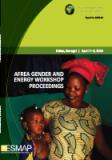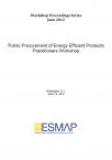Publications
An institutional overview of the challenge of rural electrification indicates that despite the problems rural electrification programs can be successful in most if not all countries. There is reason for optimism, even among countries about to embark on electrifying their poorest populations. But rural electrification is a dynamic, problem-solving process. Countries must discover solutions consistent with their geography and natural resources; demographics; and socioeconomic, cultural, and political realities. Problems change as programs evolve, but a worldwide review of developing country programs indicates that there are a set of underlying principles that guide successful programs.
Africa Electrification Initiative Workshop
Session 2: Offgrid Business Models
Session 3: Hybrid Electrification Models
Session 4: Rural Electrification Agency and Rural Electrification Fund
Session 5: Grid Intensification, Innovation and Cost
Session 6: Offgrid Technology and Lighting Africa
Session 7: Can Master Plans Work?
Session 8: Pro Access Regulation
Session 9: Monitoring and Evaluation
Session 11: Financing and Subsidies for Utilities
Session 12: Financing (and subsidies) for Small Providers and Renewable Energy
Session 13: User Financing via Micro Finance Institutions (MFI) and Utility Bills
Session 14: Institutional and Financial Aspects of a Rural Electrification Experience: Tunisia
Session 15: An Energy Subsidy Clinic: How to Design and Improve Access Subsidies



